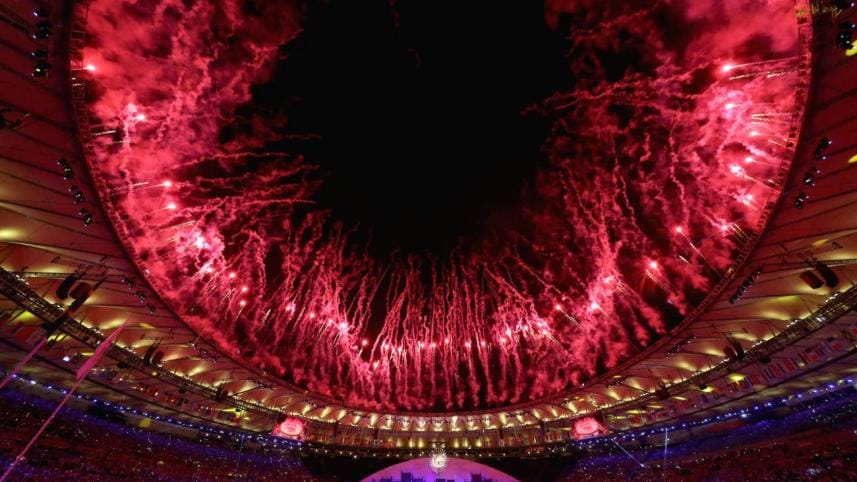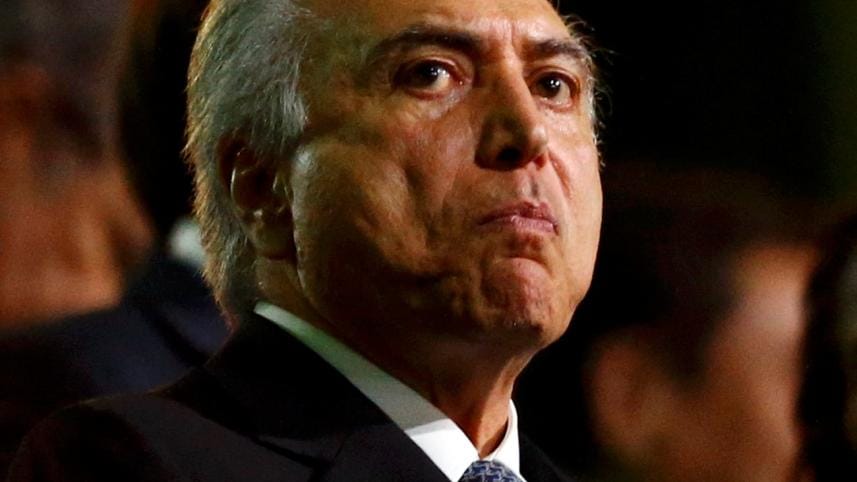Jeers for Brazil president dampen Olympic joy

The Maracana stadium erupted in jeers as Brazil's unpopular interim president Michel Temer opened the Rio Olympics on Friday -- and the hostility spread far beyond the sports venue.
The colorful opening ceremony in the famous football stadium was meant to be Brazil's moment of coming together as first host of the Olympics in South America.
The booing in response to Temer's less than 15 second statement put an end to that.
Temer, who took over in May when impeachment proceedings started against elected leftist president Dilma Rousseff, said: "After this marvelous spectacle, I declare the Rio Olympic Games open."
For opponents, who believe the impeachment process is a center-right coup, this was their cue.
Jeering spread around the stadium -- until a loud barrage of fireworks went off, drowning protesters out.
But if the show went on inside, there was no way to disguise the downbeat, even angry mood among Rio residents outside the stadium.
After a day in which anti-Temer protesters blocked traffic along iconic Copacabana beach and clashed with riot police outside the Maracana, the live coverage of the ceremony did little to raise the many Brazilians' spirits.
[twitter]
They say that if you like it then you should put a ring on it. Guess you can say we loved the #OpeningCeremonypic.twitter.com/aDUGSWEtgr
Rio 2016 (@Rio2016_en) August 6, 2016
[/twitter]At the Smelly Goat Bar, just outside the Maracana, there were bitter yells every time the television showed Temer in the stadium.
"Son of a bitch!" yelled a woman when he spoke.
Few people in the crowded bar even paid much attention to the televised extravaganza happening a block from their homes. Only the fireworks, which shot above the roofs of the neighborhood sparked real excitement.
"I couldn't care at all about the ceremony," said office administrator Patricia Palma, 43. "It's always the same things they show and it's just a lot of money taken out if our pockets."
"I prefer to come here to have a beer and be with my family."

'Olympics means more stealing'
The downbeat reaction mirrored a generally depressed mood in Rio, despite it being a city known for music, sport and joyous carnivals.
Many Cariocas, as residents are called, say that their city faces crushing economic problems, poor infrastructure and crime -- and that the Olympics have benefited mostly the rich.
Palma criticized the city's failure to keep its promise when bidding for the Olympics to control horrific pollution in the Bay of Guanabara, where sailing events will take place.
"They failed and that tells me that this was all just a way for corrupt politicians to steal more," said Palma, who was sharing a pork sandwich and a beer with her 20-year-old daughter.
Even the most enthusiastic spectators in the bar -- two friends who'd come up from Sao Paulo for the Games -- had mixed feelings.
"I wish I was in there, I wish I could have got a ticket!" said Amelia Didier, 43, suddenly rushing out into the street to look at fireworks that she'd just seen on the live television coverage.
"It's a sports feast for all the countries of the world, a great mix of cultures," Didier, an economist, said.
But when asked if the euphoria would mean lasting change for Brazil, her face fell.
"No, no," she said. "Because to put on these Games they robbed more than they put in. Very sadly, it will all come at a high cost for Brazil."
[twitter]
"A paz vem de nós não dos outros" #ficaadica #CerimoniaDeAbertura #Rio2016 #UmMundoNovo pic.twitter.com/ejoMLZnfU0
Rio 2016 (@Rio2016) August 6, 2016
[/twitter]



Comments